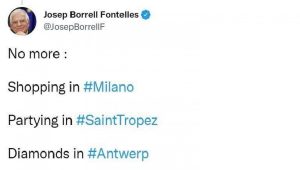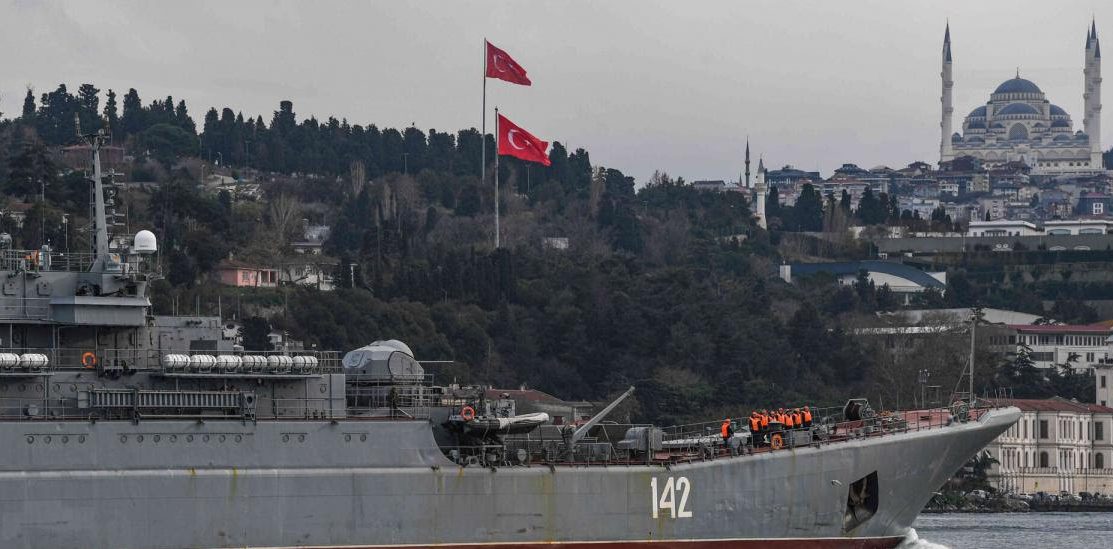After the second phase of heavy western economic sanctions on Russia was announced in the final days of February, new coordination mechanisms are being developed for a longer-term sanctions campaign, led by the United States as is often the case. This campaign will be carried out without a formal UN mandate as Russia and possibly others will ensure the UN Security Council itself is rendered useless as Moscow continues its drive towards Kyiv.
Establishing a global taskforce
In the joint US-EU-UK-Canada statement on the second wave of sanctions — further restrictive economic measures — issued February 26, a taste of things to come was highlighted.
The statement noted: “Fourth, we commit to launching this coming week a transatlantic task force that will ensure the effective implementation of our financial sanctions by identifying and freezing the assets of sanctioned individuals and companies that exist within our jurisdictions. As a part of this effort, we are committed to employing sanctions and other financial and enforcement measures on additional Russian officials and elites close to the Russian government, as well as their families, and their enablers to identify and freeze the assets they hold in our jurisdictions. We will also engage other governments and work to detect and disrupt the movement of ill-gotten gains, and to deny these individuals the ability to hide their assets in jurisdictions across the world.” Full text of the complete joint statement can be found here.
https://www.whitehouse.gov/briefing-room/statements-releases/2022/02/26/joint-statement-on-further-restrictive-economic-measures/
What this means is that we can expect to see an increasingly frenetic pace of announcements on new sanctions measures and on coordinating meetings of the new task force, which we expect will be quickly dominated by American officials. It is also not unlikely Washington will anoint a high-level sanctions emissary placed alongside the existing State Department Sanctions Policy Coordinator to try to further stiffen the global effort.
This week the EU is said to be mulling over another sanctions package that could be approved as early as March 4. It is said to focus on ports, oligarchs’ families, and trust funds, but excludes energy.

The core sanctions group
The core or founding members of the western sanctions coalition include the EU, US, UK, and Canada. This grouping covers all of the G-7 countries. While much of the world is still somewhat undecided, newer supporters, many of them key strategic global economic players, have been signing up to the sanctions group including Japan, South Korea, Taiwan, Australia, New Zealand, Singapore, and Switzerland. However, not all of these countries are able to apply the core group’s full sanctions with immediate effect.
The fence-sitters
India has not signed up to the global effort so far, due primarily to its need for Russian military equipment and support against China. While US influence has grown sharply in recent years, the implementation of sanctions by India will inevitably become a careful balancing act. Washington retains many policy tools to express its displeasure if New Delhi remains recalcitrant, especially if Russia’s economy begins to show signs of sanctions fatigue.
The United Arab Emirates is also among those critical countries walking a tightrope at the moment. Although not currently applying sanctions it is also funding Ukrainian refugee support. Airlines based in the UAE are maintaining a significant number of flights to Moscow, at least for now, providing Russia an important outlet. The UAE is also allowing Ukrainians to enter without visa restrictions.
Throwing Moscow an economic lifeline, for now
Interestingly China was said to have been considering limited financial sanctions against Russia in the first days of the conflict but has now confirmed it will not do so. Long considered the major potential winner if Russia was sanctioned heavily as is the case now, China has nevertheless lost access to several important defense technology projects that were sourced in Ukraine. There can be no doubt Washington will focus closely on stopping any potential technology transfers to Russia, now under sanction, via China.
Anyone who opens a commercial flight tracking application will note the sharp drop in flights connecting Russia to the West as sanctions have been applied. A few air links seem to stand out, notably air connections from Turkey and Serbia in addition to the UAE as previously mentioned.
Turkey has declared that it will not be applying the Western economic sanctions, making it the most problematic of NATO countries in this regard. As part of its balancing act, it has denied passage through the Bosporus — in line with the 1936 Montreux Convention — to a number of Russian naval vessels hoping to transit from the Aegean Sea.
Turkey is already under a limited range of US sanctions for its procurement of Russian missile systems; thus, it is unrealistic to expect Ankara would be cooperative about the Ukraine sanctions package without obtaining something in exchange. Turkey may also be positioning itself to pick up large numbers of Russian tourists in the summer months if EU airspace, especially Greece and Cyprus, remains closed to Russian flights.

A Russian naval ship passes through the Bosphorus Strait in Istanbul .
Serbia has also refused to sign up to the Russian sanctions package, and not simply because Moscow flights are generating new business opportunities for Air Serbia. Russia has remained Serbia’s steadfast ally in the Kosovo dispute and is a major energy supplier to Serbia. Accordingly, Serbia remains a standout in the region as the other Western Balkan EU accession aspirants have indicated their intentions to align with the EU sanctions decisions to demonstrate strong accession candidacies.
All Southeast European countries, including Serbia, voted in favor of the March 2 UN General Assembly resolution condemning the Russian invasion.
-------------------------------------------
By: Alec Mally
Title: As global sanctions net tightens, weak spots emerge
Sourced From: www.neweurope.eu/article/as-global-sanctions-net-tightens-weak-spots-emerge/
Published Date: Fri, 04 Mar 2022 20:16:24 +0000
Read More
 UK PoliticsWorld PoliticsVideosPrivacy PolicyTerms And Conditions
UK PoliticsWorld PoliticsVideosPrivacy PolicyTerms And Conditions
